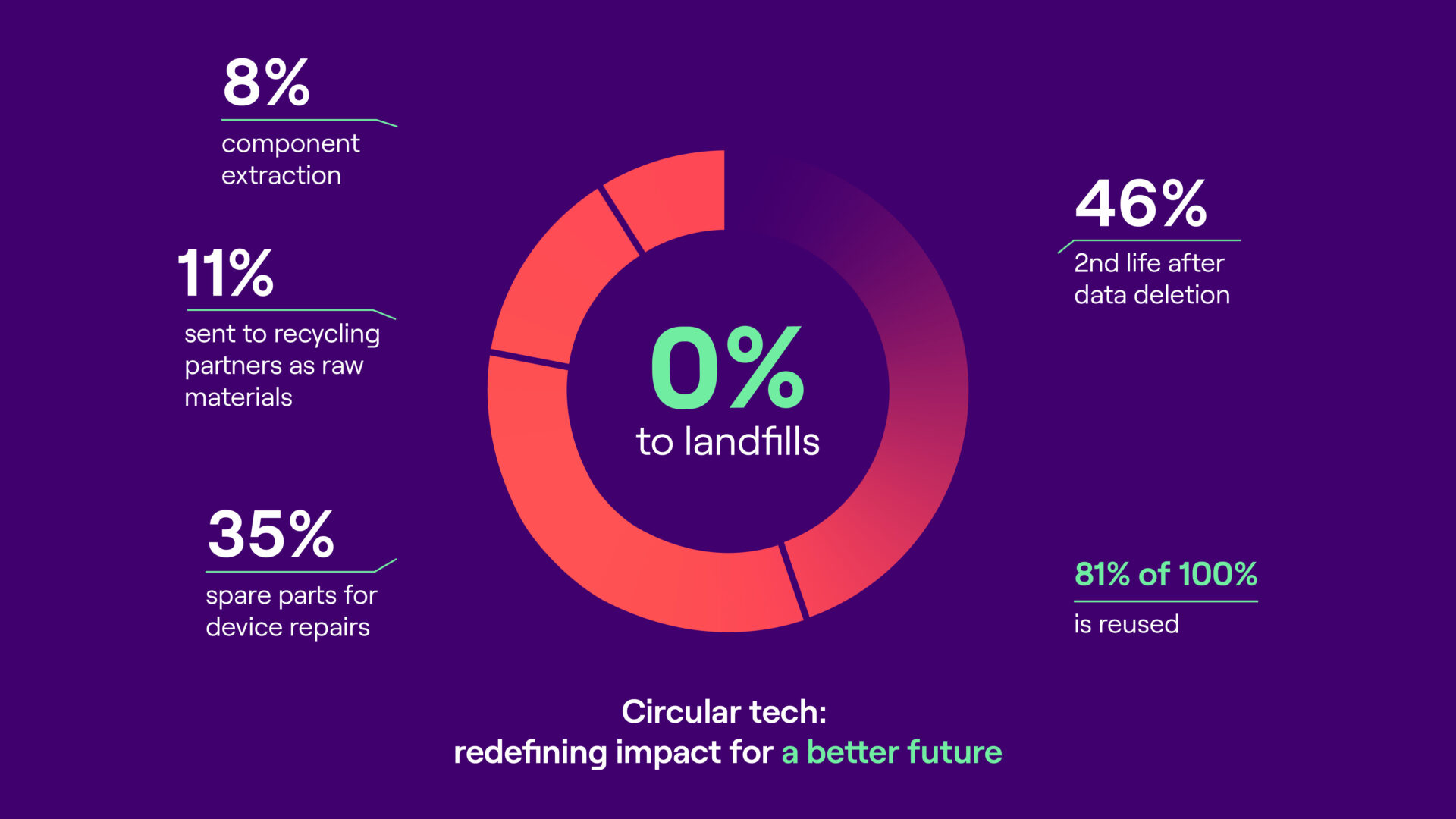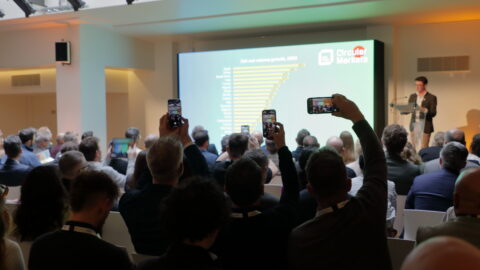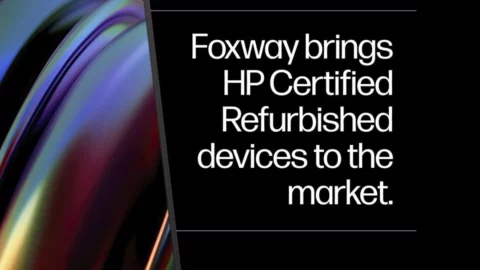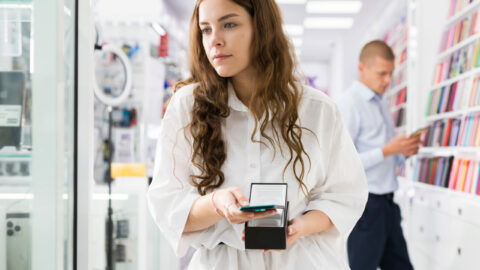Making mobile phone life cycles longer would help reduce the environmental impact of smartphones.
Foxway is the leading company in Europe that provides truly circular services. As the founding member of the European Refurbishment Association (EUREFAS), it is working towards a stronger refurbishment culture and shares advisory responsibility alongside industry representatives.
Our core business model proves that tangible actions toward reducing environmental impact can be lucrative for businesses. Smartphone vendors can do more to improve smartphone sustainability and seek new revenue streams.
Smartphone sustainability trends
One of the notable sustainability trends in the smartphone industry is the increasing focus on extending the device lifecycle. At Foxway, we have observed several developments that support this trend and signal a shift toward more sustainable practices. There is a growing demand for smartphones that are built to last and for sustainable upgrade options.
1. The Right to Repair
The EU’s Right to Repair initiative aims to empower consumers by giving them greater control over repairing their devices. Many people are limited to using licensed vendors for repairs, which can be costly and restricted to the original manufacturer. This often results in higher costs that may exceed the cost of purchasing a new or refurbished device.
However, with the implementation of the Right to Repair legislation, consumers will have access to a broader range of repair options that are both affordable and convenient. This will provide greater flexibility and ensure that devices are repaired efficiently and sustainably, contributing to a more circular economy.
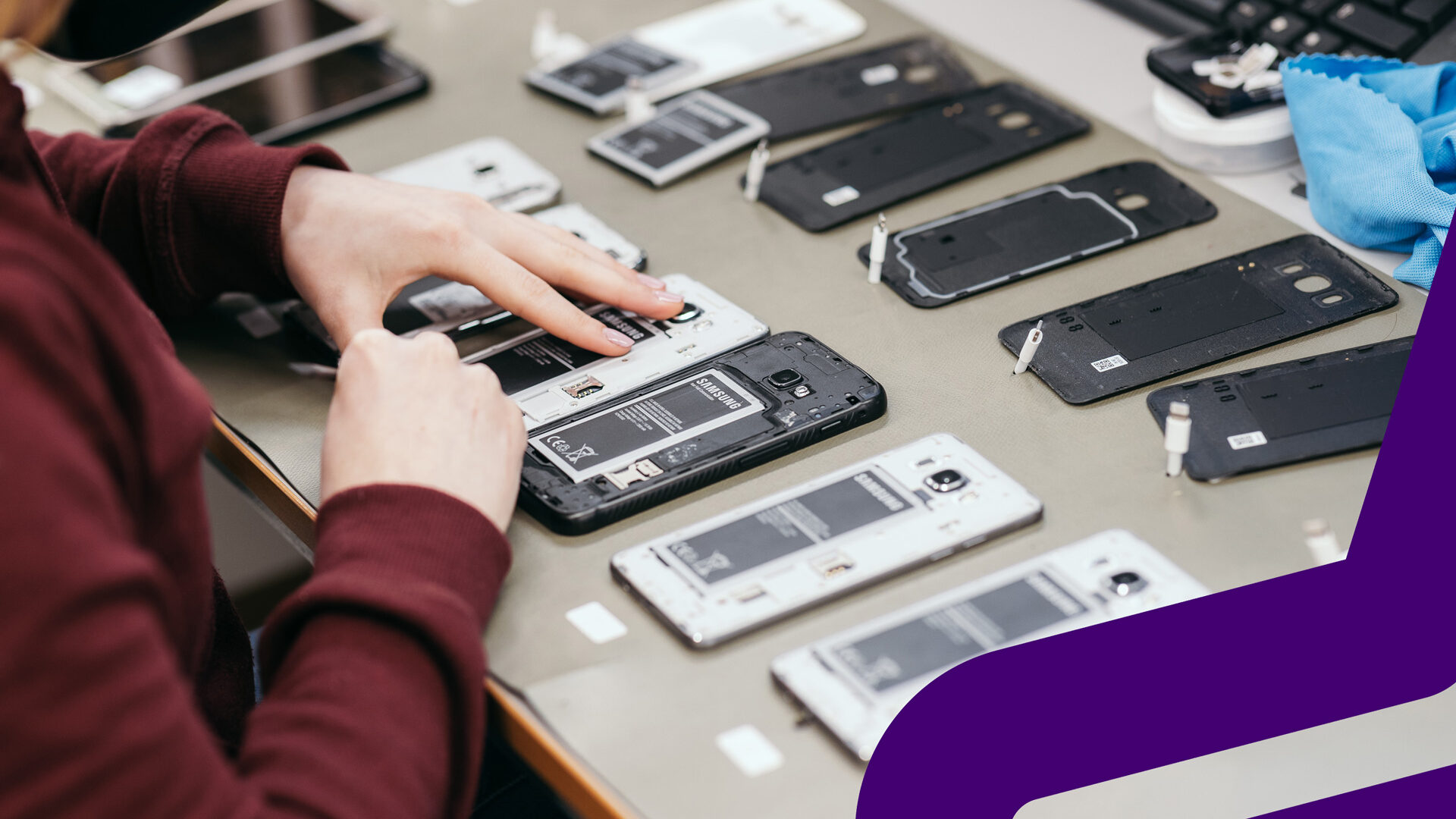
Furthermore, it’s not only consumers picking up a screwdriver and attempting to repair devices. For example, Foxway processed 1.8 million devices in 2022, and more than a million found a new life through reuse or repair. For B2B companies like ours, the right to repair enables global environmental impact.
2. Ecodesign – product design that considers the environment
The Ecodesign Directive is a crucial step towards considering the carbon footprint of smartphones. Manufacturing processes currently account for almost all of a device’s carbon emissions. One of the most effective ways to lower these emissions is to extend the expected lifetime of devices.
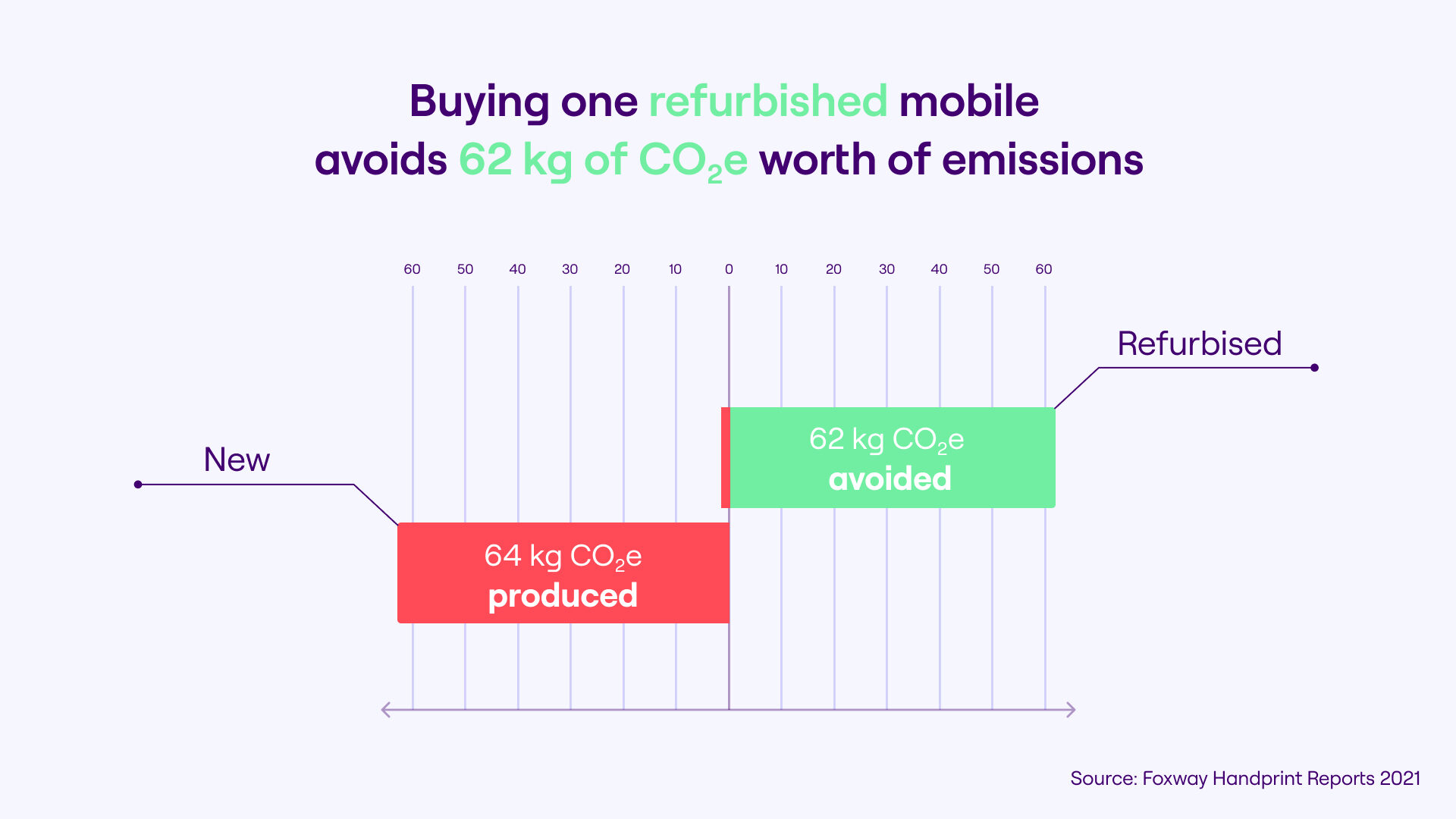
In comparison, the CO2e emissions resulting from repairs and transport and extended lifetime have a fraction of the environmental impact. Research from Foxway found that initial smartphone production emits 58 kilograms of CO2e. However, the amount of CO2e released during refurbishment is only 2.27 kilograms – a huge reduction! By increasing the lifespan of each device, we can significantly reduce our overall carbon footprint, even if the number of mobiles in use remains the same.
3. Longer life through circular economy
One solution to extend the lifetime of devices is to promote device trade-in programs. These programs allow consumers to exchange their older devices for newer ones, reducing electronic waste and encouraging the reuse of materials. Device trade-in solutions can help reduce the carbon footprint of smartphones by promoting a more sustainable approach to upgrading.

Moreover, refurbishing and reselling traded-in devices creates a circular economy that benefits everyone involved, from consumers to businesses to the environment. As such, implementing device trade-in programs is a logical next step to work towards a more sustainable future for our technology.
4. Sustainable device buyback programs are becoming more popular
The trade-in trend has become a significant factor in the mobile industry, affecting the profitability of mobile network operators, OEMs, and retailers. However, this trend has also offered various benefits to stakeholders. Trade-in programs have become a popular way for consumers to get a new device at a lower cost and promote a more sustainable upgrade for mobile network operators.
Retailers, manufacturers and smartphone vendors are incentivized to recollect pre-owned devices through buyback programs. Foxway offers mobile network partners a trade-in platform where the device’s trade-in value is determined by four easy questions besides the model of the device:
- Does it turn on?
- Does the screen work?
- Does it have all its buttons?
- Are there any noticeable cracks or damage?
As a solution to amplify sales and customer loyalty, trade-in programs can be used as a sales tool to win new customers, grow retail margins, and boost the average sales price. Device trade-in is a tangible solution to recovering old devices, giving them a new life and for retailers to drive actions towards a sustainable world.
Transforming smartphone sustainability from vision into action
Prolonged smartphone usage and product lifetimes can reshape how the technology industry generates revenues and contributes to environmental sustainability.
Initiatives taken by smartphone manufacturers and vendors are likely to influence emissions reductions by using recycled materials, allowing independent vendors to repair their phones, employing better product designers who embrace ecodesign, utilizing device trade-in programs, and even product engineers who create longer battery lives and thus reduce energy consumption.
For the smartphone industry, as for other industry sectors, achieving decarbonization targets will require companies to change how they conduct their business.
Overall, trade-in programs are a valuable tool for businesses to build stronger relationships with customers and impact their ESG goals. As the mobile industry continues to evolve, it is essential to consider these programs as a way to drive growth and success.
Recommerce Retail & Online Buyback Buyback Trade-in-value Sustainability
